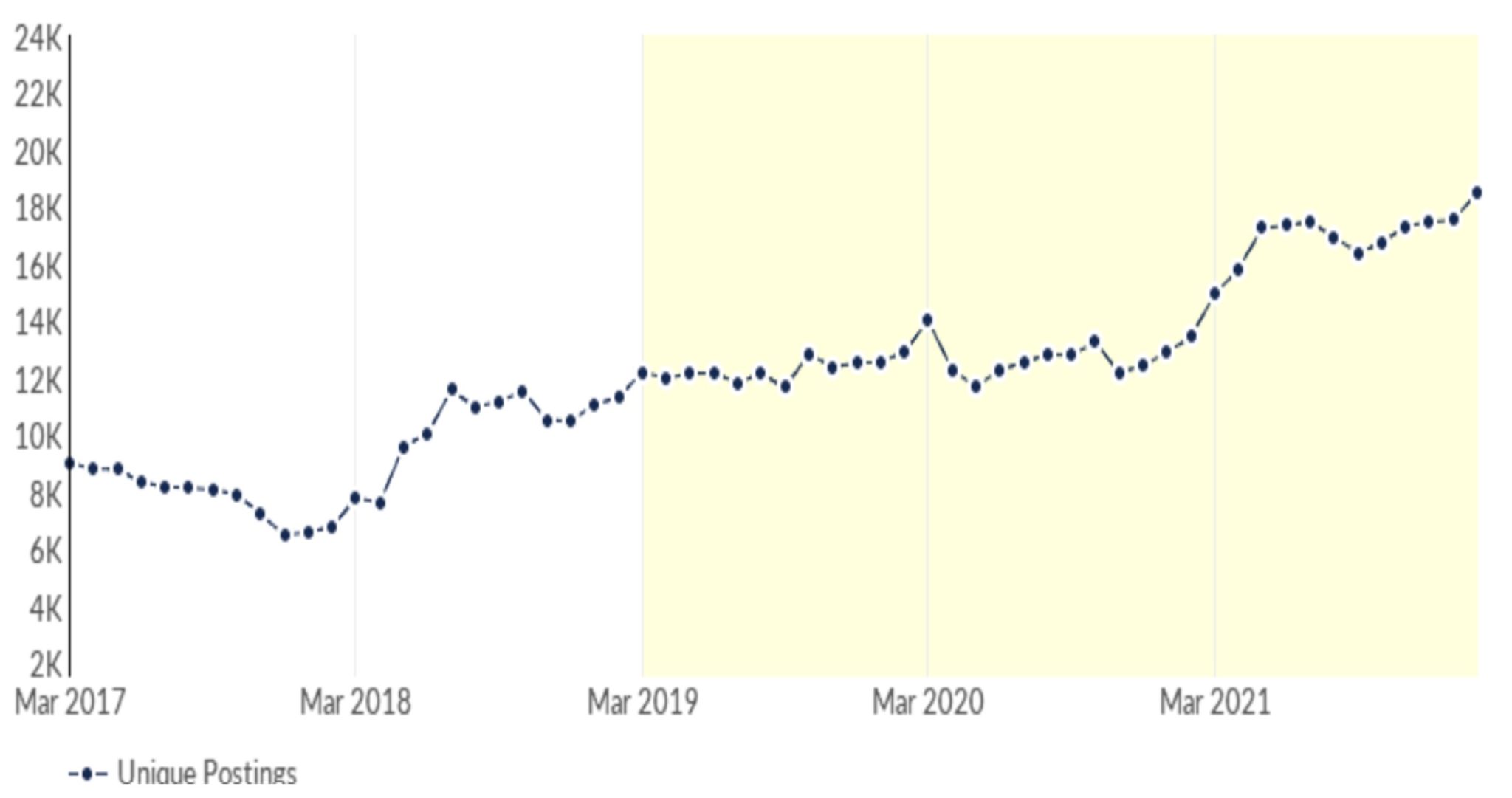Demand for social workers is growing—here are 3 ways to optimize your program for growth
Even before the COVID-19 pandemic, social work programs were evolving to address growing socioeconomic disparities, changing health policies, and shifting social justice theories. In light of these demands—and the ongoing pressures of the pandemic—it’s no wonder job postings for social workers reached an all-time high in February 2022. And employment opportunities for social workers are only expected to increase. The Bureau of Labor Statistics projects employment of social workers will grow 12% from 2020 to 2030—faster than the 8% average employment growth expected across all occupations in that period.

However, with 2,369 master’s-level social work programs reporting degree completions in 2020, students face immense choice when deciding where to enroll. After helping dozens of EAB partner institutions improve their Master of Social Work (MSW) programs, we recommend these three ways to strengthen your MSW offering and best prepare students for the job market.
HOW ONE MSW PROGRAM GREW ENROLLMENT BY 10%
Incorporate telehealth skills to adapt to today and tomorrow’s care delivery needs
As our research team shared last year, we’ve seen a rise in the number of job postings requesting health care professionals with telehealth skills throughout the pandemic. And telemedicine is here to stay. Developing skills to fit the needs of at-home patient care will prepare social work students for a new age of employment opportunities.
Social work programs can create educational and professional opportunities to cultivate telehealth skills. Create courses or update the existing curriculum to include in-demand skills such as “service delivery,” “caregiving,” and “telehealth.” Check out this University of South Florida course on telehealth or Ursuline College’s telehealth coursework for examples of how to confer these skills.
Align concentrations to emerging social work needs (e.g., trauma care)
We know graduate students and adult learners often seek programs with opportunities for customization, including concentrations. While many social work programs include concentrations such as “families and children,” “social justice and policy,” and “mental health and wellness,” adding concentrations tailored towards emerging skills in 2022 like “trauma care” and “crisis management” will give program graduates a niche set of skills that employers are seeking. Our local and regional job postings analyses continue to show growing demand for these skills. Check out the University of Chicago’s Trauma Responsive MSW or University of Northern Iowa’s MSW with a concentration in Trauma-Informed Care for examples of how programs can confer trauma care skills.
LEARN MORE ABOUT WHAT GRADUATE STUDENTS LOOK FOR WHEN SELECTING A GRADUATE PROGRAM
Develop partnerships with local health care providers to create field work opportunities for students
Master of Social Work programs require a minimum of 900 hours of supervised field instruction. For students balancing school with professional and personal obligations, figuring out how to complete these clinical hours could pose extra stress. One way to lessen the burden of finding placements is to expand partnerships with local health care providers. Employer partnerships help demonstrate program value and rigor—and may help streamline students’ placement in the practicum. To identify potential employer partnerships, or find opportunities to expand existing partnerships, check to see if there are employers in your area whose employees are alumni of or currently enrolled in your MSW program. And where possible, list employer partnerships on your program website to further convey your program’s value to prospective students.
USE THIS CHECKLIST TO IMPROVE YOUR PROGRAM DESIGN
By tailoring your social work program to fit the needs of employers, program graduates will be better prepared to serve in today and tomorrow’s social work roles.
More Blogs

The big bets that actually drive online enrollment growth

How to use state demand data to launch or revitalize programs
